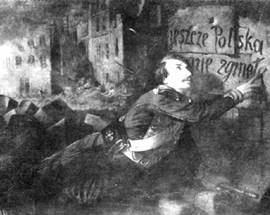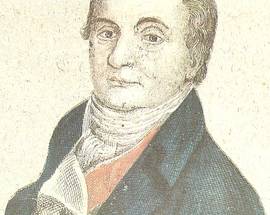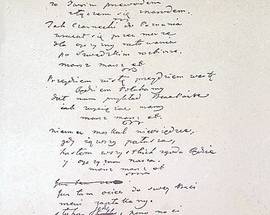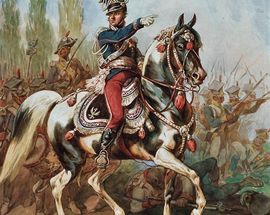The song was originally penned by Józef Wybicki in Italy, where General Jan Henryk Dąbrowski and his troops were helping Napoleon conquer Italy at the end of the 18th century, shortly after the Third Partition of Poland effectively erased Poland from the map (hence the line ‘March, March Dąbrowski, from Italian lands to Polish’ – ‘Marsz, marsz Dąbrowski, z ziemi włoskiej do Polski’ in Polish). Neighbours Prussia, Russia and Austria dissolved the once-powerful empire, forcing the Poles to turn to France as an ally in regaining Polish independence. General Henryk Dąbrowski organised soldiers to fight with Napoleon against the Austrians, with the hope of pushing that fight into the homeland for a national uprising.
Wybicki’s tune was created to boost the morale of those soldiers and proved to be an instant hit far beyond the front lines thanks to its uplifting lyrics - this was a song which would become an anthem for a country which did not feature on any maps, but touched a chord with Polish people, the very symbol of the irrepressibility of the Polish spirit. National uprisings and wars were a key feature in trying to regain a country, but the preservation of Polish culture through literature and music were equally as important. The opening stanza sums up this notion of Polish defiance perfectly:
Poland has not yet perished
So long as we still live
What foreign force has taken from us
We shall take back with the sabre.
The anthem contains a reference to Napoleon with whose armies the Poles hope to ‘cross the Vistula and Warta (rivers) .... Bonaparte has shown us the roads to victory.’ Unfortunately, as with most Polish tales, things did not end well for Dąbrowski and his soldiers. The French turned out to be less than useful allies, exploiting the Polish soldiers and decimating their ranks via war and disease, effectively killing any chance of recapturing the homeland. But when Poland once again became a free nation at the end of WWI the song was revived and declared the country’s official anthem in 1926.
One of the most famous performances of “Poland is Not Yet Lost” came in 1945, when famed Polish pianist Artur Rubinstein performed at the opening concert at the inauguration of the United Nations. Upset that Poland had no delegation, Rubinstein played a loud, slow version of the anthem, repeating the final section loudly. This display of patriotism resulted in Rubinstein receiving a standing ovation.
The composer Józef Wybicki called Poland’s Kashubia region home, and today diehards can visit the manor house where he lived, which is now home to the rather unusual National Anthem Museum. To hear the anthem click on the link.







Comments